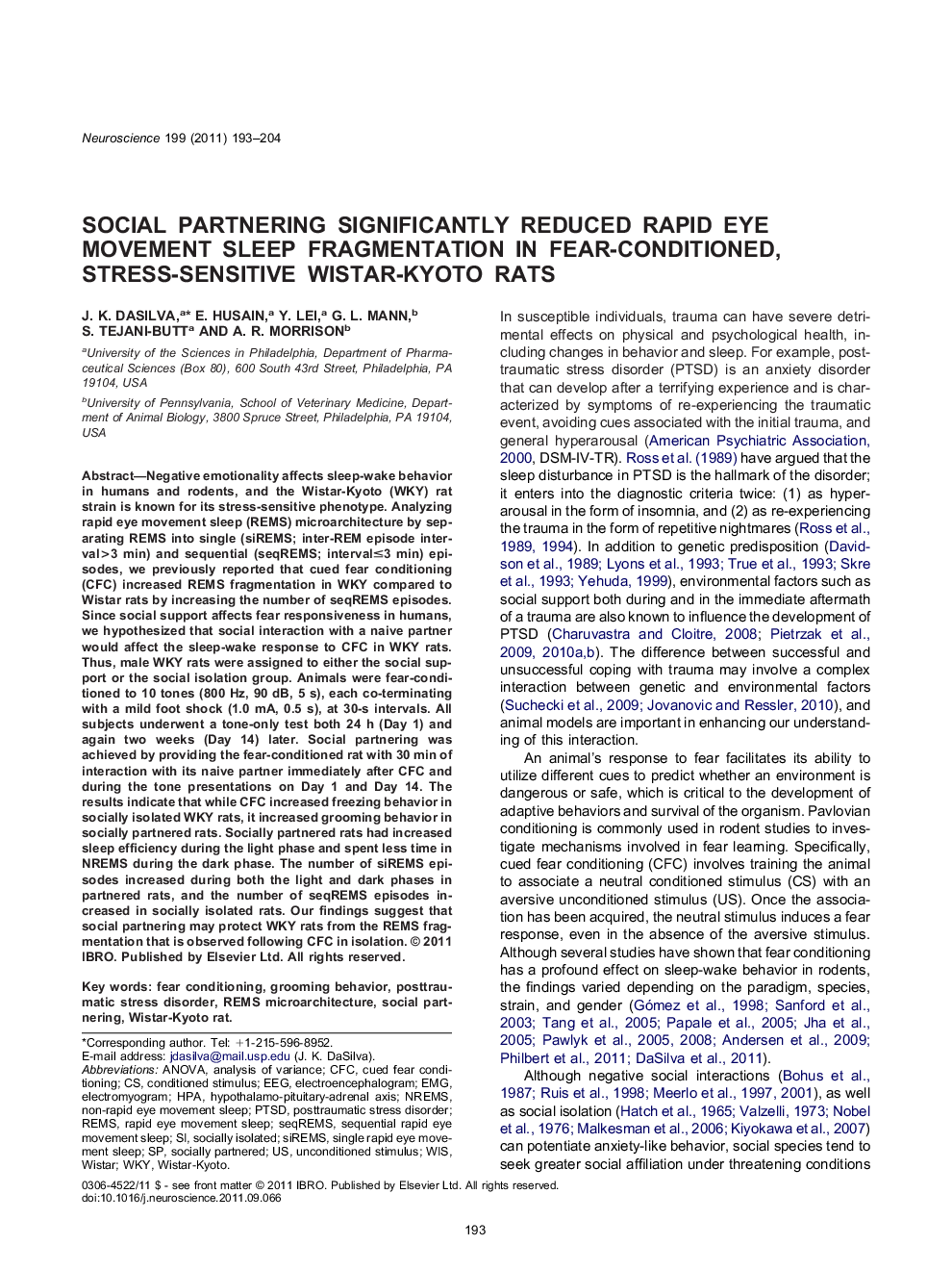| کد مقاله | کد نشریه | سال انتشار | مقاله انگلیسی | نسخه تمام متن |
|---|---|---|---|---|
| 4338669 | 1614877 | 2011 | 12 صفحه PDF | دانلود رایگان |

Negative emotionality affects sleep-wake behavior in humans and rodents, and the Wistar-Kyoto (WKY) rat strain is known for its stress-sensitive phenotype. Analyzing rapid eye movement sleep (REMS) microarchitecture by separating REMS into single (siREMS; inter-REM episode interval>3 min) and sequential (seqREMS; interval≤3 min) episodes, we previously reported that cued fear conditioning (CFC) increased REMS fragmentation in WKY compared to Wistar rats by increasing the number of seqREMS episodes. Since social support affects fear responsiveness in humans, we hypothesized that social interaction with a naive partner would affect the sleep-wake response to CFC in WKY rats. Thus, male WKY rats were assigned to either the social support or the social isolation group. Animals were fear-conditioned to 10 tones (800 Hz, 90 dB, 5 s), each co-terminating with a mild foot shock (1.0 mA, 0.5 s), at 30-s intervals. All subjects underwent a tone-only test both 24 h (Day 1) and again two weeks (Day 14) later. Social partnering was achieved by providing the fear-conditioned rat with 30 min of interaction with its naive partner immediately after CFC and during the tone presentations on Day 1 and Day 14. The results indicate that while CFC increased freezing behavior in socially isolated WKY rats, it increased grooming behavior in socially partnered rats. Socially partnered rats had increased sleep efficiency during the light phase and spent less time in NREMS during the dark phase. The number of siREMS episodes increased during both the light and dark phases in partnered rats, and the number of seqREMS episodes increased in socially isolated rats. Our findings suggest that social partnering may protect WKY rats from the REMS fragmentation that is observed following CFC in isolation.
▶Fear conditioning fragments REM sleep in socially isolated Wistar-Kyoto rats. ▶Social partnering may protect fear-conditioned Wistar-Kyoto rats from REM sleep fragmentation. ▶Social partnering reduced the freezing response to conditioned fear in Wistar-Kyoto.
Journal: Neuroscience - Volume 199, 29 December 2011, Pages 193–204